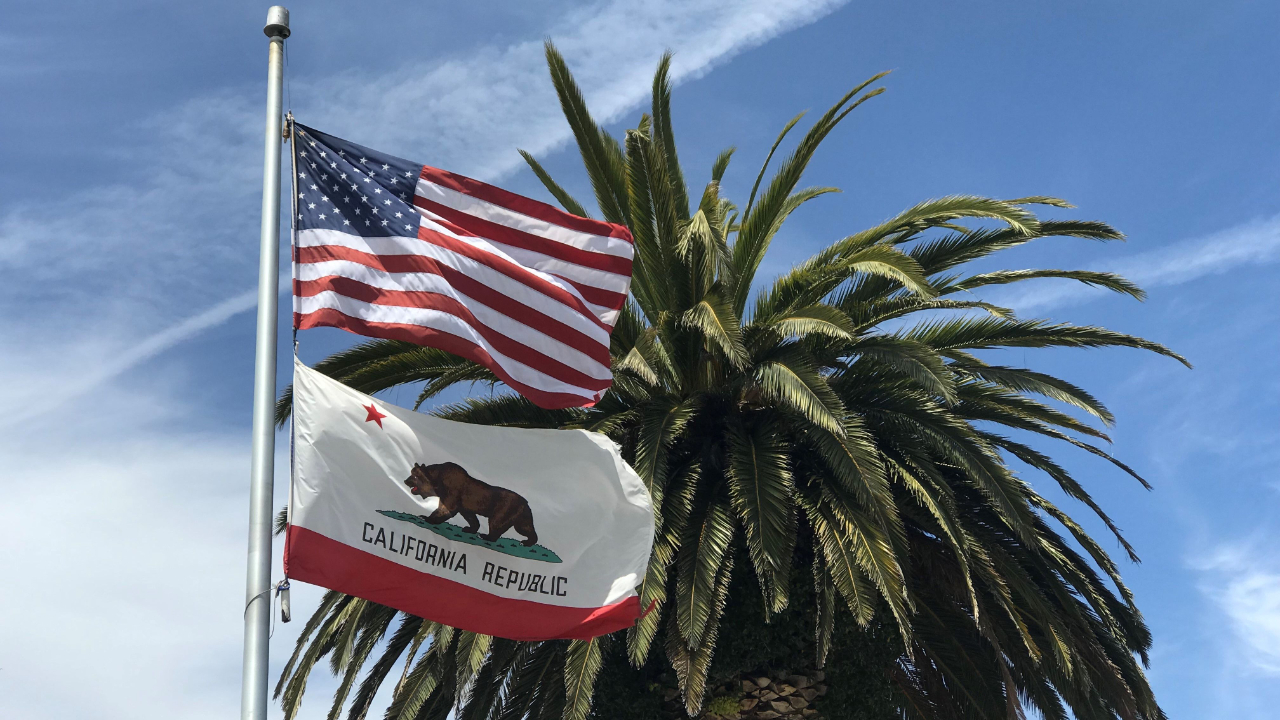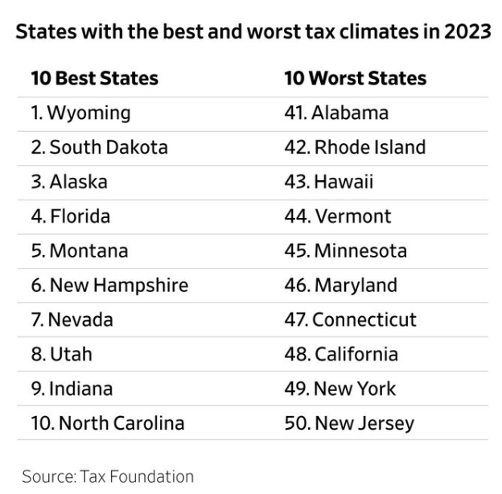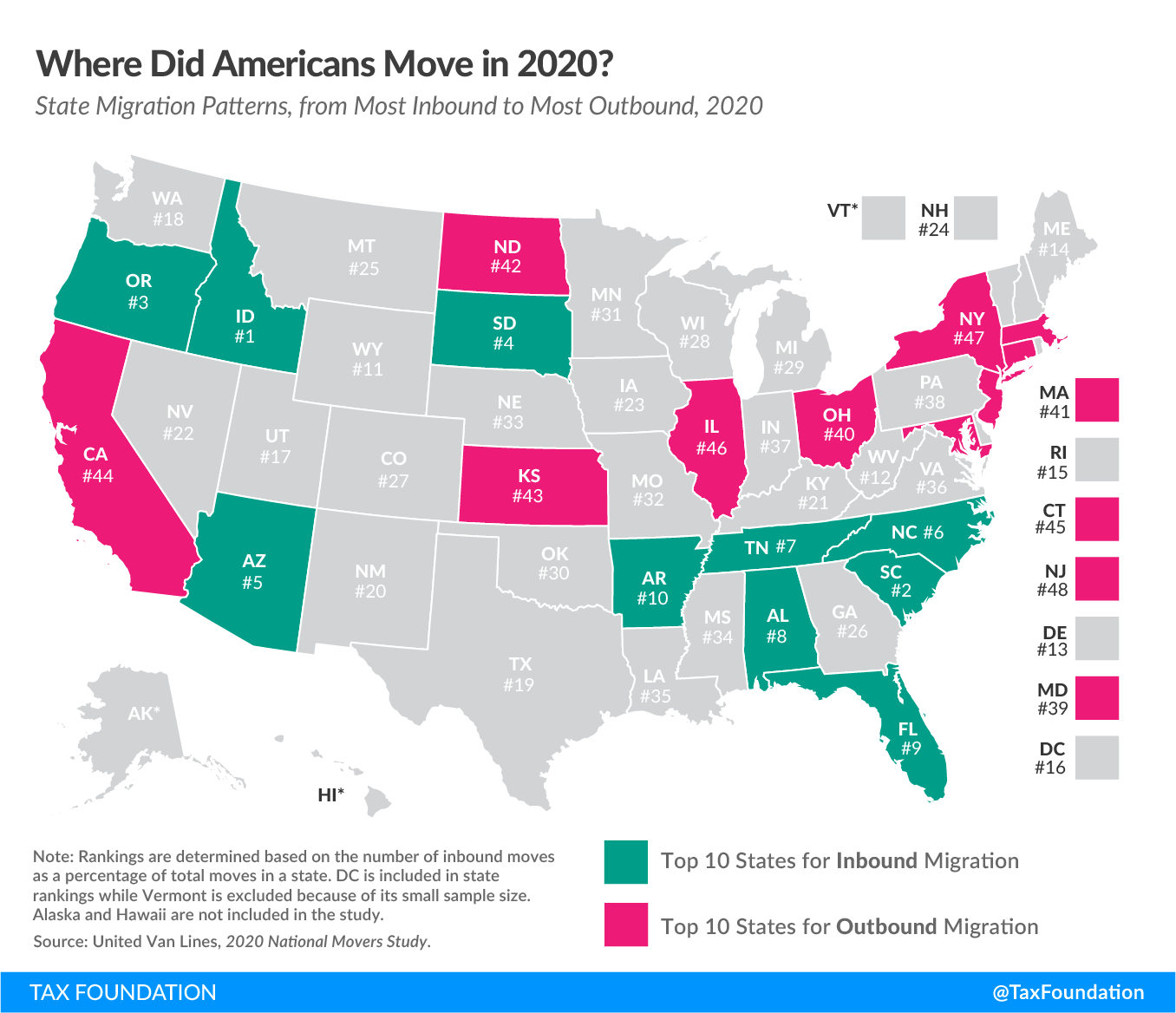Are You Living in the Best State for You?
Nov 10, 2022
For those living in the U.S., the recent midterm elections are a reminder that the United States is a federal democratic republic. “Federal” in the sense that we have both a national government and governments of each of 50 states and “democratic republic” in that people hold power, but elect representatives to exercise that power. As a result, there are 50 different laboratories to choose from (51 if Washington, D.C. is included) and the day-to-day lived experience can vary significantly often driven by what state one lives in.
A federal democratic republic, like the United States, rewards personal preference and choice. If you don’t like the direction of your state, vote for candidates that represent your views. If you don’t like your state, you have the option to move to one that is better aligned with your interests and values. This is when you should be asking yourself, "what state is best for me?"

In 2021, people moved an average of 50 miles, up from 15 miles the prior year, and likely crossing more state lines (Photo by HiveBoxx on Unsplash)
Are You Living in the Best State for You?
There are a multitude of factors to consider when evaluating the best state for you. Note that the weighting of these factors varies by the individual. Below are some areas to consider in particular:
Politics
Do the politics align with your values? This is becoming an increasingly important with the political polarizing of the country. For some, politics may trigger a move to a different state. Issues such as abortion, crime, education, and tax policy (see below) among many others can nudge someone to consider living in a different state. The results of the midterm election may be enough for you to reconsider the attractiveness of your state.
One should be wary of shifting politics. States that heavily slant towards one party – such that a state’s governor and congress are aligned with either the Democratic or Republican party – are more likely to drift towards radical policies. California and Texas are examples for the Democrats and Republicans, respectively. States with divided government are less likely to change as there is an effective system of checks and balances. Consistently “purple” states can be attractive for those looking for status quo.

Not surprisingly people from New Jersey and New York are migrating to Florida (Source: Tax Foundation)
Tax Policy
Evaluating tax policy can be tricky. Income, sales, property and estate taxes – among others – all factor into the overall attractiveness of a state’s tax policy. The Tax Foundation recently found Wyoming, South Dakota and Alaska the most attractive and New Jersey, New York and California the least attractive.
Do note that states without an income tax can be more expensive that one might expect. For example, Texas boasts no income tax, but property taxes are high and average sales tax is 8.2%, ranking #13th overall.
These policies matter at the individual level but can also influence the trajectory of a state. All else equal, higher taxes discourage growth, negatively impact job prospects and dampen home appreciation. Therefore, it’s not surprising that Florida has the highest net domestic migration while California and New York lead the country in net out migration.
Fiscal Health
Perhaps most important is the fiscal health of a state. Some states are in poor financial condition because of crumbling infrastructure needs and underfunded financial commitments, such as for government pensions, and insufficient annual revenues. Illinois ranks as the worst state financially, with projected insufficient funds to cover short-term obligations and substantial unfunded pension liabilities. Connecticut, Kentucky, Massachusetts, and New Jersey are also weak in this measure. Florida, Nebraska, Oklahoma, South Dakota, and Tennessee, on the other hand, are among the most solvent.
Solvency is crucial because a weak financial position may force a state to raise revenue, such as through tax increases, cut services, or defer important capital expenditures. Such changes may make it less attractive for current residents, triggering a desire to move as well as decrease its appeal to outsiders. In either case, these changes can negatively affect growth.
Place Making
Some states make it easier to create and maintain great places for all people. In a new book, Hyperlocal, Jennifer Vey of Brookings highlights the role of governance in successfully managing places. Florida and Washington, DC, for example, have policies that help promote financial accountability and transparency for business improvement districts (BIDs), a benefit to all stakeholders in a community. Policies governing place can affect your lived experience, especially as a renter.

People are generally moving to the Southeast and select states in the West
(Source: Tax Foundation)
Is it Time for a Change?
My friends Mike and Johanna moved from Illinois to Utah in large part because of tax policy and fiscal health considerations. They were born and raised in the Midwest and brought up their children in the greater Chicago area, children who have settled in other regions of the country. They were increasingly concerned about the trajectory of Illinois and reached a point where their concerns outweighed the benefits. They now live in the Salt Lake City area and work remotely for their firms. They are pleased with their decision.
The midterm elections were a reminder to exercise the right to vote as part of a federal democratic republic. Maybe now is also the time to consider moving to a better state for you within that republic, or at the very least, have the discussion - "what state is best for me?"
Take the Right Place, Right Time Assessment
Are you in the right place for right now? This quick assessment will reveal opportunities to improve your life.
Subscribe to The Blog
We hate SPAM. We will never sell your information, for any reason.

